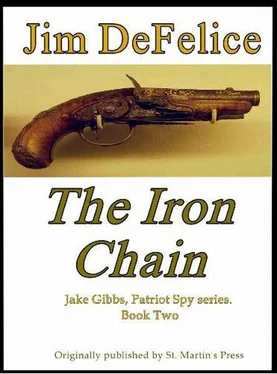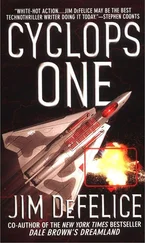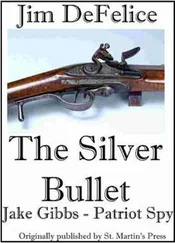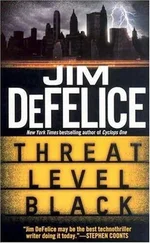Jim DeFelice - The iroh chain
Здесь есть возможность читать онлайн «Jim DeFelice - The iroh chain» весь текст электронной книги совершенно бесплатно (целиком полную версию без сокращений). В некоторых случаях можно слушать аудио, скачать через торрент в формате fb2 и присутствует краткое содержание. Жанр: Исторические приключения, на английском языке. Описание произведения, (предисловие) а так же отзывы посетителей доступны на портале библиотеки ЛибКат.
- Название:The iroh chain
- Автор:
- Жанр:
- Год:неизвестен
- ISBN:нет данных
- Рейтинг книги:4 / 5. Голосов: 1
-
Избранное:Добавить в избранное
- Отзывы:
-
Ваша оценка:
- 80
- 1
- 2
- 3
- 4
- 5
The iroh chain: краткое содержание, описание и аннотация
Предлагаем к чтению аннотацию, описание, краткое содержание или предисловие (зависит от того, что написал сам автор книги «The iroh chain»). Если вы не нашли необходимую информацию о книге — напишите в комментариях, мы постараемся отыскать её.
The iroh chain — читать онлайн бесплатно полную книгу (весь текст) целиком
Ниже представлен текст книги, разбитый по страницам. Система сохранения места последней прочитанной страницы, позволяет с удобством читать онлайн бесплатно книгу «The iroh chain», без необходимости каждый раз заново искать на чём Вы остановились. Поставьте закладку, и сможете в любой момент перейти на страницу, на которой закончили чтение.
Интервал:
Закладка:
A dim spark of far-off lightning framed the Tory's face with the last blow. Dark sadness mixed with surprise as Busch's eyes grew glassy. In the next moment he coughed blood, the fight over.
Even in that second, Jake felt genuine regret that this soul had been lost to the enemy. But it did not stop him from dropping the limp body to the floor of the canoe. He took the knife and looked down at his own hip, awash in blood.
It would have given his mother quite a fright to see him now, he thought.
Odd, to think of his long-dead mother at a moment like this. Her image flickered in his brain as he dropped to his knees along the side of the boat, fishing for the rope that bound it to the chain.
At every second, he expected to be immolated in a resounding blast. It may have been three seconds before his wrist struck something wet and warm; it may have been three hours. By the time his brain realized it was the rope, his fingers were already sawing the knife through it.
Suddenly he felt a gentle tap on his shoulder. He looked up in amazement. The only thought that seemed plausible was that he had died, and was being welcomed to heaven by his long-dead mother.
But Jake Gibbs hadn't died — not yet, anyway. The rope had merely given way, and the current snatched the canoe with such force it was as if a dozen teamsters had grabbed hold of the boat and pushed it downstream. The tap he felt was the lash of the rope; when it brushed by him he was already flying into the water.
Chapter Forty-four
Claus van Clynne and his adopted band of Connecticut regulars had not been idle during Jake's heroic battle on the river. Indeed, the soldiers and their general — if we may stretch the term a little longer — had found themselves hard-pressed by the retreating Tory raiding force. The storm warmed van Clynne's heart if not his clothes, as he understood the disturbance to be the product of certain former members of Henry Hudson's crew, but this old story was too long and complicated to be explained to his men under the circumstances. Nonetheless, he rallied them with every encouragement possible as the combined company of rangers and marines fell against the American interlopers in their rear.
At first the British forces unloaded their weapons with great relish, whether they had a target in sight or not. Their enthusiasm at the chance to spill some enemy blood kept them operating more as individuals than as a massed group, which was fortunate. For so it is in warfare, that overweening energy can be as great a detriment as an asset; as long as the red- and greencoats stayed isolated in ones and twos and did not mass for a charge, the Americans caught between them and the shore were comparatively safe. Their officers soon realized the problem, and began trying to organize them into two brigades for a frontal assault, where their bayonets and not their weather-fouled guns would be the important weapons.
The galley Dependence, meanwhile, had realized something was amiss on shore. She came up with her cannons and swivels loaded, ready to provide whatever support her ground forces required. The captain gave one good flash of an 18-pounder — a heavy cannon under the circumstances, but a mere child's weapon compared to the vessel's main armament — to alert her troops that she was prepared to assist. The ball sailed a good distance over everyone's heads, landing with a thud in the hills.
Having completed some of his most successful business dealings in the dark of the night, van Clynne realized it would be difficult from the water to tell who was friend and who was foe. He therefore endeavored to convince the Dependence that her troops were those nearest the shore — a not unnatural assumption, since that was where she had originally left them. And so he answered the cannon shot with his own pistol, and called out, with his best British accent, that the Americans had overwhelmed the advance guard and were about to overtake them.
One hears many tongues and accents in the Americas; there is French and its many varieties, Dutch and German, various African languages, a multitude of Indian dialects. English itself comes in a cornucopia of styles and slants; it is not difficult to tell a Rhode Islander from a Virginian, nor would someone from Boston be confused with a Jamestown resident, once his mouth was open.
The Dutchman's shout from the shore had an accent all its own. Though it was based on what he imagined a British marine would sound like, in truth, he had not had so much experience with these fellows that he could easily mimic the voice. His own Dutch accent was strong besides; overall, the tone was quite peculiar, if not overly pleasing.
Fortunately, the mate aboard the Dependence who heard it took it for Welsh. More importantly, he interpreted van Clynne's words — "We are here, and the rabble is a hundred yards further inland." — as perfectly as if they were the king's own English. The Dependence immediately began firing its heavy weapons into the supposed rebels, breaking up the marine and Tory charge.
Another man might have thought this a pretty good night's work, and been content to lie low while the balls shot overhead. But the squire was just warming to the battle. Besides, his dislike of the water extended to everything upon it, and this galley and her monstrous gun were a tempting target.
Or would have been, had they anything to bombard her with. The impudent British, unaware that they were firing at their own men, proceeded right up to the shore, launching ball after ball. A youth with a slingshot could pick them off with his rocks.
Van Clynne grabbed one of his soldiers just as he leveled a musket in the galley's direction.
"I have a much better idea," said the Dutchman, glancing upward at the rocky edge of the nearby hillside. "Two of you men stay here and pretend you're part of the British landing party. When you hear our assault begin, run for cover — don't dally."
As van Clynne leads his men to a small but strategic path between the berry bushes up a short but not insignificant promontory south of St. Anthony's Nose, we will take a brief but critical detour of our own, joining Dr. Keen and his kidnapped guide, sweet Jane. They were at this precise moment hurrying in the doctor's coach to Marshad's cottage.
Keen, partly because of intermittent pain from his wounds, had been a perfect gentleman — assuming one makes the natural allowance for the fact that he held Jake's loaded Segallas next to Jane's throat. After permitting her to fetch a cloak, he escorted the girl from the inn to his coach, making a brief detour to borrow a horse from her uncle's stable.
The animal was tied to the rear of the carriage. Jane was then introduced to the coach's sleeping occupant. She reacted with an involuntary gulp — Rose's mother lived a short distance away from Jane's uncle, and the two girls had often played together before Rose was sent to the Stonemans' to learn the rudiments of caring for a house.
"This will be even easier than I hoped," Keen declared, taking Jane to the driver's bench and tying a long rope to her ankle. He suggested that, should she disobey any of his commands, he would kill not just her but her entire family. From that point on, the doctor sat back and let her drive to the cottage, brooding in silence while working out the details for her lover's ambush.
Keen did not know that there was a connection between this young woman and his enemy, else the course of our tale might be far different. Jane, however, had recognized the Segallas as belonging to her lover's assistant — one must forgive her for seeing the world through Claus van Clynne's eyes. She therefore had some confidence that she and Rose soon would be rescued. She was also comforted by the knowledge that the exceedingly sharp paring knife secreted beneath her boned corset would come in handy should her captor get fresh.
Читать дальшеИнтервал:
Закладка:
Похожие книги на «The iroh chain»
Представляем Вашему вниманию похожие книги на «The iroh chain» списком для выбора. Мы отобрали схожую по названию и смыслу литературу в надежде предоставить читателям больше вариантов отыскать новые, интересные, ещё непрочитанные произведения.
Обсуждение, отзывы о книге «The iroh chain» и просто собственные мнения читателей. Оставьте ваши комментарии, напишите, что Вы думаете о произведении, его смысле или главных героях. Укажите что конкретно понравилось, а что нет, и почему Вы так считаете.












